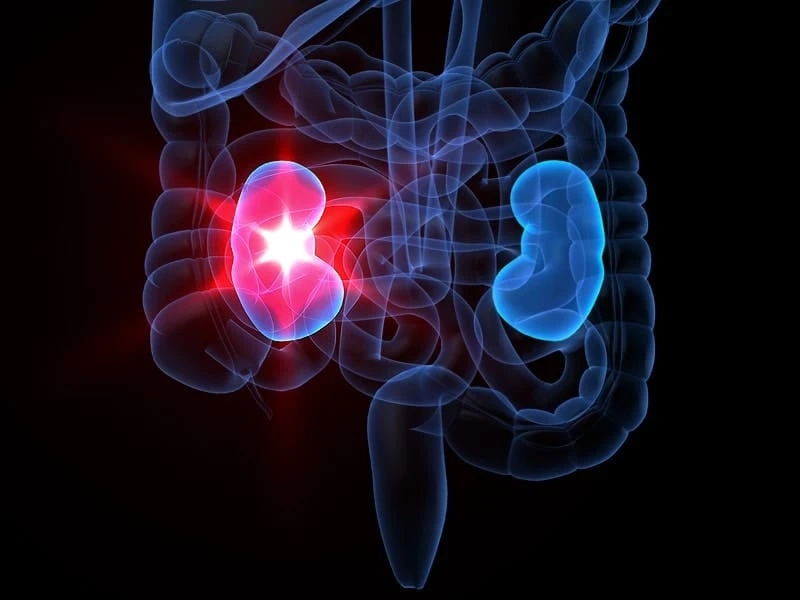Not everyone knows the difference between a urologist and a nephrologist; therefore, when visiting a clinic, confusion often arises: the patient spends time and money not learning which doctor to contact.
What diseases does a nephrologist treat, and when is it necessary to visit this specialist? Nephrology is the branch of medicine that studies the functions and conditions of the kidneys. However, suppose a urologist is engaged in diagnosing, examining, treating, and preventing diseases of the entire genitourinary system and its organs. In that case, a nephrologist is a narrowly specialized doctor who specializes specifically in kidney problems. Riverside Nephrology Physicians provide the best nephrology physicians treatment in USA.
A nephrologist treats a large number of acute or chronic kidney diseases, but he mainly treats the following conditions:
kidney stones;
pyelonephritis;
organ damage by drugs;
kidney failure;
amyloidosis of the kidneys;
polycystic kidney disease;
nephritis;
glomerulonephritis;
various nephropathy;
post-transplantation syndrome;
systemic pathologies are affecting the kidneys.
At the first signs of disturbances in the functioning of the urinary system, an urgent visit to the nephrologist is required.
Urination disorders (reduction or complete cessation of urination, an increase in daily urine volume).
Unnatural colour of urine. Impurities of blood, pus, mucus or white flakes in the urine.
Causeless pain of a different nature in the lumbar region and above.
Severe swelling of the face and legs.
Elevated body temperature for a long time (subfebrile temperature.
Rapid fatigue and reduced performance.
Problems with the stool, dizziness, nausea and vomiting.
Regular increase in blood pressure.
The presence of one or more of these symptoms - a reason to immediately consult a doctor.
A nephrologist is also recommended to be observed in the presence of the following diseases:
kidney failure;
syndrome of acute inflammation of the kidneys;
renal colic;
urinary infections.
In some cases, kidney disease may be asymptomatic, or the patient may consider the ailment minor. However, if the patient does not turn to a nephrologist in time, there is a risk of developing cardiovascular and urinary systems complications. Therefore, it is recommended to take general blood and urine tests at least once a year to conduct an ultrasound examination of the kidneys.
Sometimes kidney disease occurs in young children. A doctor should be consulted when a child has:
swelling;
urination disorders (decrease and increase in the volume of the daily amount of urine);
change in colour or consistency of urine, saturated colour of urine (bright yellow or reddish, turbidity);
an admixture of mucus or blood in the urine;
constant redness of the external genitalia;
the unusual smell of urine;
crying of the child at the time of urination;
nighttime urination after 4 years.
During the consultation, the doctor prescribes tests that will help identify the source of the disease and its nature. For the results of clinical studies to be as accurate as possible, it is necessary to prepare for a doctor\'s appointment:
stop eating 12 hours before seeing a doctor;
do not smoke, do not take alcohol;
if possible, exclude medication (if for health reasons, the patient is forced to take some drug, he must inform the doctor about this);
do not drink a lot of fluids on the eve of the examination.
Before visiting a nephrologist, you must:
12 hours before the scheduled time of admission, stop eating, do not smoke or drink alcohol;
drink a small amount of liquid in the evening;
stop taking the medication the day before, if possible.
Before visiting a nephrologist, it is necessary to remember about previous diseases, about medications taken recently, take measurements of arterial blood pressure, and record readings. In addition, women need to remember how the pregnancy and childbirth went, whether there were any complications or problems.
At the appointment, the specialist asks the patient about complaints, collects the patient\'s history, considers the likelihood of a genetic predisposition to kidney disease. Then an examination is carried out, after which the nephrologist prescribes the delivery of tests, in particular various urine tests. Finally, an ultrasound examination and other diagnostic measures are defined to obtain a more accurate clinical picture.
Treatment depends on the diagnosis and severity of the disease: for example, a doctor may prescribe a course of antibiotics, non-steroidal anti-inflammatory drugs, painkillers, antimicrobials, etc., to the patient. Riverside Nephrology Physicians provide the best Transplant Coordinator treatment in USA.
As a rule, a special diet is recommended: the intake of salt, fast carbohydrates, spicy or fried foods is limited. A proper diet with a reduced-calorie content is recommended for problems with excess weight. In addition, you should follow a healthy lifestyle and give up alcohol.
0



